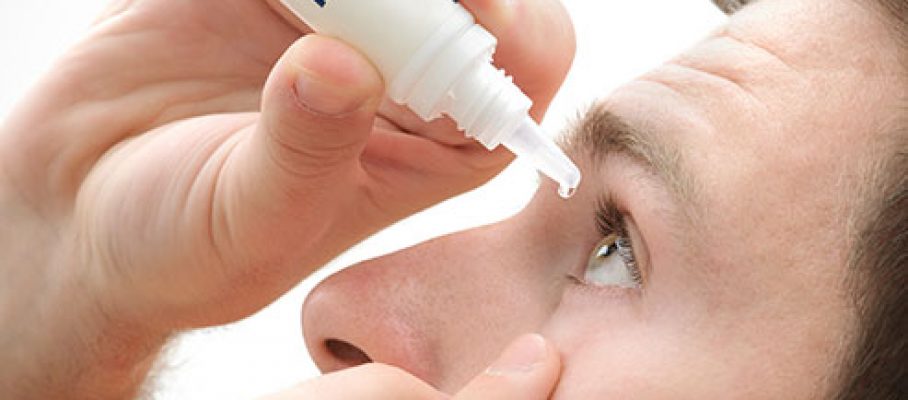Nov 16 2016
Eye Allergies And How To Treat Them
Just like your body can over react to something it thinks could cause you trouble your eyes will also have a over reaction to something it perceives as dangerous. Allergic conjunctivitis or pink eye is a common problem for many people. Eye allergies are often hereditary and run in families so look for a family history of them. Eye allergies can be accompanied by other allergy symptoms like a runny nose and sneezing or may occur in those who suffer from hay fever and asthma. If you are one of those people who suffer from eye allergies you must take action to prevent them.
Treating Eye Allergies
Eye Allergies can be very irritating and hard to treat. The worst thing you can do is to rub your eye with your hand, as your hand may contain bacteria and it will only inflame your eyes more. You can try some eye drops to keep them from becoming dry. Some people claim capsules of herbal supplements like eyebright and ginkgo biloba help. You may want apply a cold compress with a clean sterile wash cloth. The old stand by of putting cucumber slices over the eyes will also act as a cold compress and can sometimes help. You might also want to try a soothing eye pillow. Antihistamines and decongestants can also reduce eye allergy symptoms. If you wear contact lenses your contacts could be complicating things and making your eyes feel worse. You might want to switch to regular glasses at times when your eyes are really bothering you.
Eye problems are not to be taken lightly. Many serious eye problems could have the same symptoms as eye allergies so its important to get a medical diagnosis. Its important to get eye allergies under control as long term rubbing and itching could cause damage to your eyes.






Jan 18 2017
4 Ways to Prevent Infection_After Surgery
Surgery is scary enough on its own. Understanding the dangers of post-surgery complications is that much more worrisome. Part of human nature is to take one’s health seriously, and that’s why the prevention of infection is such a pressing issue. Here are four ways to prevent infection after surgery.
Follow the Doctor’s Orders
Image via Flickr by hang_in_there
As simple as it sounds, following your doctor’s orders is the most critical step toward a healthy recover. Many people are too stubborn to pay attention to such suggestions, and that leads to tragic results. According to Johns Hopkins University research, between one and three out of every 100 patients develop a surgical site infection (SSI). Most of the time, it’s because patients didn’t listen to their surgeon. Because you didn’t go to medical school and your physician did, follow his or her instructions. Doing so could save your life.
Practice Good Hygiene
No matter how clean you are most of the time, you have to err on the side of caution after surgery. The skin that protects your body from harmful bacteria isn’t solid. A surgeon’s blade pierced that area, leaving gaps. Infection will occur if you touch that area in an unsanitary manner. Adding bacteria to a surgical site will cause a setback to your recovery or, in extreme instances, an SSI that could kill you.
In the wake of surgery, wash your hands to the point of obsession. Use hand sanitizer regularly, too. According to the founders of the Safe Care Campaign, hand sanitizer is a great defense against SSI. Also, try not to touch the inside of your mouth, nose, ears, or other orifices. Bacteria exist in these places that can harm your surgical site, leading to the spread of infectious germs.
Reduce Swelling
Swelling is one of the most dangerous post-surgery issues. It can cause blood clots that increase your risk of suffering heart attack, stroke, and other direct outcomes. The prevention of swelling is so important that many hospitals require patients to wear compression socks during the recovery period. Their sole purpose is to control swelling.
Doctors will also recommend prescriptions to reduce swelling. If your physician suggests these, fill your prescription immediately, then take your medication at the recommended times. Also, make sure that you’re using the suggested dosage. These medications are crucial to avoiding SSI.
Rest Often
During the post-surgery recovery phase, you must rest. Even if you’re a go-getter who wants to get back in action as soon as possible, you should resist that temptation. Although bed rest isn’t as popular a recovery suggestion today, the underlying premise is still accurate. When patients try to do more, they are exponentially more likely to cause more health issues, including SSI.
When you need surgery, accept that you’ll have to take things easily afterward. Think of the long-term benefits of this situation. Some bed rest with the blissful comfort of a warming blanket will actually speed up your recovery. You’ll get healthy sooner, even if you find the recovery process frustratingly slow at the time.
In the wake of surgery, you must take care of yourself. Follow these tips to guarantee that you avoid an SSI and get healthy as quickly as possible.
By admin • Health Care • • Tags: bacteria, blood clots, health, medication, Practice Good Hygiene, prevention, Rest Often, Safe Care Campaign, skin, SSI